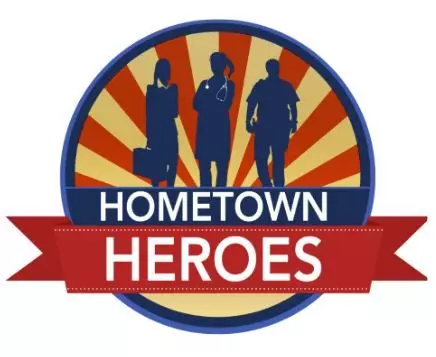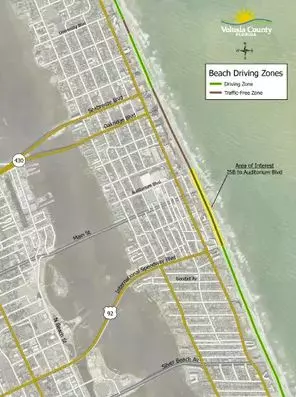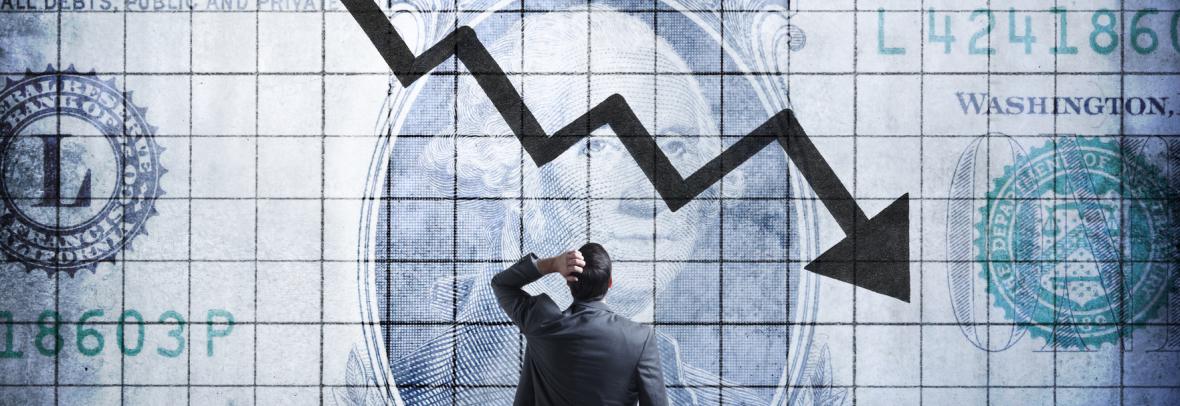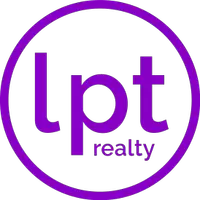
Leave your cans out, park your truck: DeSantis signs bill to rein in overbearing HOA fines
Florida residents with oppressive and obsessive HOAs, your day of freedom may be at hand. Homeowner associations (HOAs) were created to maintain standards, uniformity and a sense of community while collecting dues to pay for common areas, services and general neighborhood improvements. But they also tend to attract people with strong opinions about what their neighbors can do. It seems that everyone who has lived in an HOA has a horror story about petty or arbitrary fines that keep increasing, harassment, inflexible and overly restrictive rules regarding the appearance of homes and lawns, the lack of budget transparency, or just the ongoing grind of living under the watchful eyes of HOA busy bodies with tape measures and a lot of free time who care deeply about where you park. A new bill, signed Friday by Gov, Ron DeSantis, may change all that when it takes effect July 1. Or at least make life a little more manageable. HB 1203, Homeowners' Association, was just one of several HOA bills introduced in this year's legislative session but it may be the most sweeping one, amounting to essentially a Homeowner's Bill of Rights. Under state law, HOAs will be restricted from some of the most complained-about rules and fines and required to be more transparent. This law comes just after another one forcing HOAs to allow homeowners to harden their homes against hurricanes. What Florida HOAs can't do to homeowners anymore As of July 1, 2024, HOAs will be prohibited from: Enforcing rules on some residents but not others Banning homeowners or their invited guests from parking personal, business or first responder vehicles (including pickup trucks) that are not commercial vehicles in their driveways or any other area where they have a right to park per state, county and municipal regulations Banning contractors or workers from the homeowner's property Fining residents for leaving garbage cans at the curb or the end of their driveway within 24 hours of a scheduled trash collection Fining residents for leaving up holiday lights or decorations past the HOA's rules without prior notice, after which the homeowner will have one week to take them down Limiting or creating rules for the inside of a structure that isn't visible from the street, a neighbor's property, an adjacent common area or a community golf course Banning vegetable gardens or clotheslines, if they can't be seen from the street, a neighbor's property, an adjacent common area or a community golf course Require review and approval of plans for central air conditioning, refrigeration, heating or ventilation system that isn't visible from the street, a neighbor's property, an adjacent common area or a community golf course and is similar to previously approved systems If a construction or improvement request is denied, the HOA also must provide written notice "stating with specificity" exactly why and under which rule or covenant. Law requires HOA transparency Every HOA must keep its official records (bylaws and amendments, articles of incorporation, declaration of covenants, current rules, meeting minutes, insurance policies, contracts, financials, budgets, tax returns, voting records, etc.) for at least seven years. Destruction of accounting records within that time is a first-degree misdemeanor. HOAs with more than 100 parcels must post all of their rules, convenents, budgets and related documents on their websites by Jan. 1. HOAs must provide notice and agendas for any scheduled meeting of its members at least 14 days in advance in plain sight on its website. Any document to be considered and voted on must be posted online at least seven days before the meeting. An HOA with at least 1,000 parcels must prepare audited financial statements. Official records must be made available to a parcel owner within 10 business days of receipt of their written request, with some restrictions on how many physical copies are permitted, or the HOA must pay damages. Violation is a second-degree misdemeanor. Refusal to comply with the intent of avoiding criminal investigations or punishment is a third-degree felony. If an HOA receives a subpoena for records from a law enforcement agency, they must provide a copy or make them available for copying within five business days. Every three months, a homeowner may make a written request for a detailed accounting of any and all money they owe to the association related to their parcel, and get it within 15 business days. If the board does not comply, any outstanding fines the person owes older than 30 days that they never received written notice of will be waived. HOA director education, and bribes A newly elected or appointed director must complete education on financial literacy and transparency, recordkeeping, levying of fines, and notice and meeting requirements within 90 days and repeat it at least every four years. On top of that, the director of an HOA with fewer than 2,500 parcels must complete at least four hours of continuing education every year or be suspended until they do. An HOA officer, director or manager who solicits offers or accepts kickbacks commits a third-degree felony and must immediately be removed from office. HOA managers or management firms have to be involved and easy to find An HOA manager or a representative of the HOA management firm must: Attend, in person, at least one annual member or board meeting Provide the name and contact information for every HOA manager or management form rep assigned to the HOA along with their hours of availability and a summary of their duties, which must be posted to the HOA's website and kept current Provide a copy of the contract between the manager or management firm and the HOA and keep it with the HOA records Complete at least five hours of continuing education on HOAs, with three hours relating to recordkeeping What are HOAs? A Homeowner's Association or HOA is an organization in a planned community, neighborhood subdivision or condominium building that creates and enforces rules for the properties, residents and guests. It charges fees to be used for the maintenance of the community and may levy fines against residents who violate the rules. HOA rules are often in place to maintain conformity among the permitted architecture, color schemes, landscaping and decorations. HOAs also enforce parking restrictions, noise complaint policies, home occupancy limits, vacation rentals and more. Anyone buying property within the jurisdiction of an HOA automatically becomes a member of the HOA and subject to its restrictions and covenants.
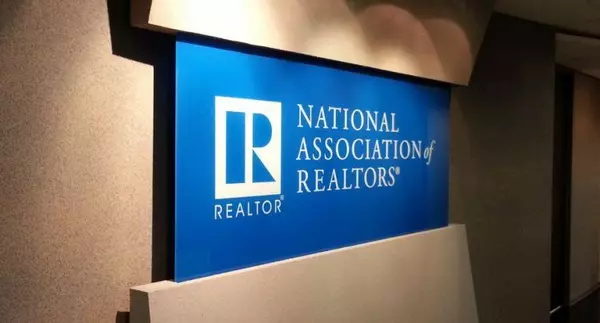
Correcting the Record: NAR Does Not Set Commissions
Following recent inaccuracies in media coverage, including the false representation or suggestion that the National Association of REALTORS® (NAR) requires a standard 6% commission, NAR has issued the following statement: CHICAGO (March 19, 2024) – The National Association of REALTORS® (NAR) does not set commissions – they are negotiable. The rule that has been the subject of litigation requires only that listing brokers communicate an offer of compensation. That offer can be any amount, including zero. And other rules throughout the MLS Handbook and NAR policy expressly prohibit MLSs, associations, and brokers from setting or suggesting any such amount that should be included in that field. The text of the current rule is linked here and excerpted below, the text of our MLS Antitrust Compliance Policy is linked here and excerpted below, and a notice included in NAR’s MLS Handbook is below. Again, the current rule that has been the subject of litigation does not set commissions. As reflected in our release about the proposed settlement agreement, NAR has agreed to put in place a new MLS rule prohibiting offers of broker compensation on the MLS. Commissions remain negotiable, as they have been. Excerpt from Handbook on Multiple Listing Policy – Commission/Cooperative Compensation Offers, Section 1: Information Specifying the Compensation on Each Listing Filed with a Multiple Listing Service of an Association of REALTORS® In filing property with the multiple listing service, participants make blanket unilateral offers of compensation to the other MLS participants and shall therefore specify on each listing filed with the service the compensation being offered by the listing broker to the other MLS participants. This is necessary because cooperating participants have the right to know what their compensation will be prior to commencing their efforts to sell. The listing broker retains the right to determine the amount of compensation offered to subagents, buyer agents, or to brokers acting in other agency or nonagency capacities, which may be the same or different. Excerpt from Handbook on Multiple Listing Policy – MLS Antitrust Compliance Policy The purpose of multiple listing is the orderly correlation and dissemination of listing information to participants so they may better serve the buying and selling public. Boards and associations of REALTORS® and their multiple listing services shall not enact or enforce any rule which restricts, limits, or interferes with participants in their relations with each other, in their broker/client relationships, or in the conduct of their business in the following areas. Boards and associations of REALTORS® and their MLSs shall not: Fix, control, recommend, or suggest the commissions or fees charged for real estate brokerage services (Interpretation 14). Fix, control, recommend, or suggest the cooperative compensation offered by listing brokers to potential cooperating brokers. Excerpt from Handbook on Multiple Listing Policy – Notice to Association Members Under the long-established policy of this association, the (state) association of REALTORS®, and the National Association of REALTORS®: The broker’s compensation for services rendered in respect to any listing is solely a matter of negotiation between the broker and his or her client, and is not fixed, controlled, recommended, or maintained by any persons not a party to the listing agreement. The compensation paid by a listing broker to a cooperating broker in respect to any listing is established by the listing broker and is not fixed, controlled, recommended, or maintained by any persons other than the lister broker. (Amended 4/92) About the National Association of REALTORS® The National Association of REALTORS® is America’s largest trade association, representing more than 1.5 million members involved in all aspects of the residential and commercial real estate industries. The term REALTOR® is a registered collective membership mark that identifies a real estate professional who is a member of the National Association of REALTORS® and subscribes to its strict Code of Ethics.

Daytona's beachside has been undergoing improvements 'street by street, block by block.'
DAYTONA BEACH — Weathered and timeworn metal sign frame structures turned into colorful public art. Blighted back alleyways constantly littered with trash and junk finally cleaned up. Sun-baked traffic light poles getting fresh coats of black paint. These are beachside projects tackled by city government workers over the past few years. They might seem like small improvements, but for the people who live near them, they're long-awaited refurbishment and reassurance the city cares about them and their neighborhood. "It helps us to understand and see we have support and a backup," said beachside resident Brad Gonzalez. "That gives us the drive to improve our community even more." The improvements, and more like them, began with a commitment over three years ago from Mayor Derrick Henry to work with Seabreeze neighborhood residents on remedying the chronic problems making their beachside community look and feel blighted. "Sometimes when you work with the community, you get something better than you thought," Henry said as he reported on the improvements during the March 5 City Commission meeting. The project went so well that the mayor wants to duplicate it now and do the same thing in other areas of Daytona Beach. "I'm ready for the next community and neighborhood because beautification is something we should take as a priority all across the city," Henry said. Little projects add up to big changes The mayor's Beachside Action Committee was established at the beginning of 2021. The aim was to pursue improvements that could be made relatively quickly, easily, and inexpensively. Most of the projects were approved and planned in 2021, and the goal was to complete them as quickly as possible. Despite some supply chain challenges and tropical storms, about a dozen projects were completed in 2022 and 2023. One project involved a colorful outdoor welcome sign that alerted passersby that road beautification work was starting late last year on East International Speedway Boulevard. The sign featured three large palm trees and said "Welcome to our beachside." The sign stationed at the city's main gateway to the beach was also placed there to give people hope that beachside blight is being addressed. A second project grew out of a plan to remove large metal sign frames along Seabreeze Boulevard in early 2021. The towering frames were paint-starved and looking beat up. An out-of-the-box suggestion was to repurpose them as public art. The sign frames now have ocean-themed pictures of turtles, fish and a sunrise. They're covered in durable paint that will need minimal touching up. Another project centered on the unsightly trash scattered around beachside alleys and the rear of some businesses. Pictures before work got underway show stacks of wood, piles of trash bags, cardboard boxes, overturned trash cans, and buildings with graffiti and scattered junk. "That looks horrible. We don't want to look like that," Henry said when he saw photos of the alleys and side streets before they were cleaned up. In early 2021, the Public Works division began improving trash pickup and litter removal at businesses. Code Enforcement officers prioritized the back alleys of Seabreeze Boulevard bars and commercial Dumpster enclosures. After some time passed, the junk and trash vanished, trash cans were neatly lined up, and pressure washing and paint made the buildings look much better. "That's a remarkable difference," Henry said when he saw the post-cleanup photos. Improvements to sidewalks, curbs, signs and park In the middle of 2021, the city started a new pressure washing and maintenance program that focused on beachside sidewalks and curbs. Repairs improved pedestrian safety, and the sidewalks and curbs were left with a much cleaner, refreshed look. The sidewalk repairs were also done in a way that allowed much-needed shade trees to remain in place. Sidewalks along Seabreeze Boulevard also got drainable landscape covers for palm trees planted in those walkways. The gray-colored covers give pedestrians a smoother and safer surface to walk near, and they reduce stormwater debris. Faded, damaged and vandalized street signs and beach access signs were also replaced. Colin's Park also received new playground equipment including swings, landscaping, signs, sidewalks, picnic tables and parking. The pavilion received much-needed paint and picnic tables, and new benches were also added. Residents say the improvements brought families back to the riverfront park off of University Boulevard. Neighbors working together A parade of Seabreeze Boulevard-area residents came to the March 5 City Commission meeting to take turns at the podium thanking Henry, but the mayor said others also deserve credit. "It's not about me," Henry said. "It's about beachside residents who stood up and decided they wanted to participate." The mayor said "high praise" is also due to city staff members who partnered "with the residents to work day by day, street by street, block by block to beautify the beachside." Residents said they're grateful for the improvements. "Neighborhoods with a strong sense of place help people to flourish," Joyce Case said. When Case moved to her Seabreeze-area neighborhood in 2001, she said there were a lot of investment properties and not a lot of owner-occupied homes. But she couldn't resist her 1939 home two blocks from the beach, so she took a chance. Another Daytona neighborhood improving:Daytona Beach's new approach for riverfront vagrancy: Network of vigilant security guards Slowly but surely, she's seen improvements. First came traffic calmers, then improved code enforcement, and then an earlier bar closing time. A neighborhood watch group formed, a police department substation was opened, and various efforts have been made to reduce late-night problems generated by Seabreeze Boulevard bars. Case said the improvements have "inspired neighbors to work together."
Categories
Recent Posts
